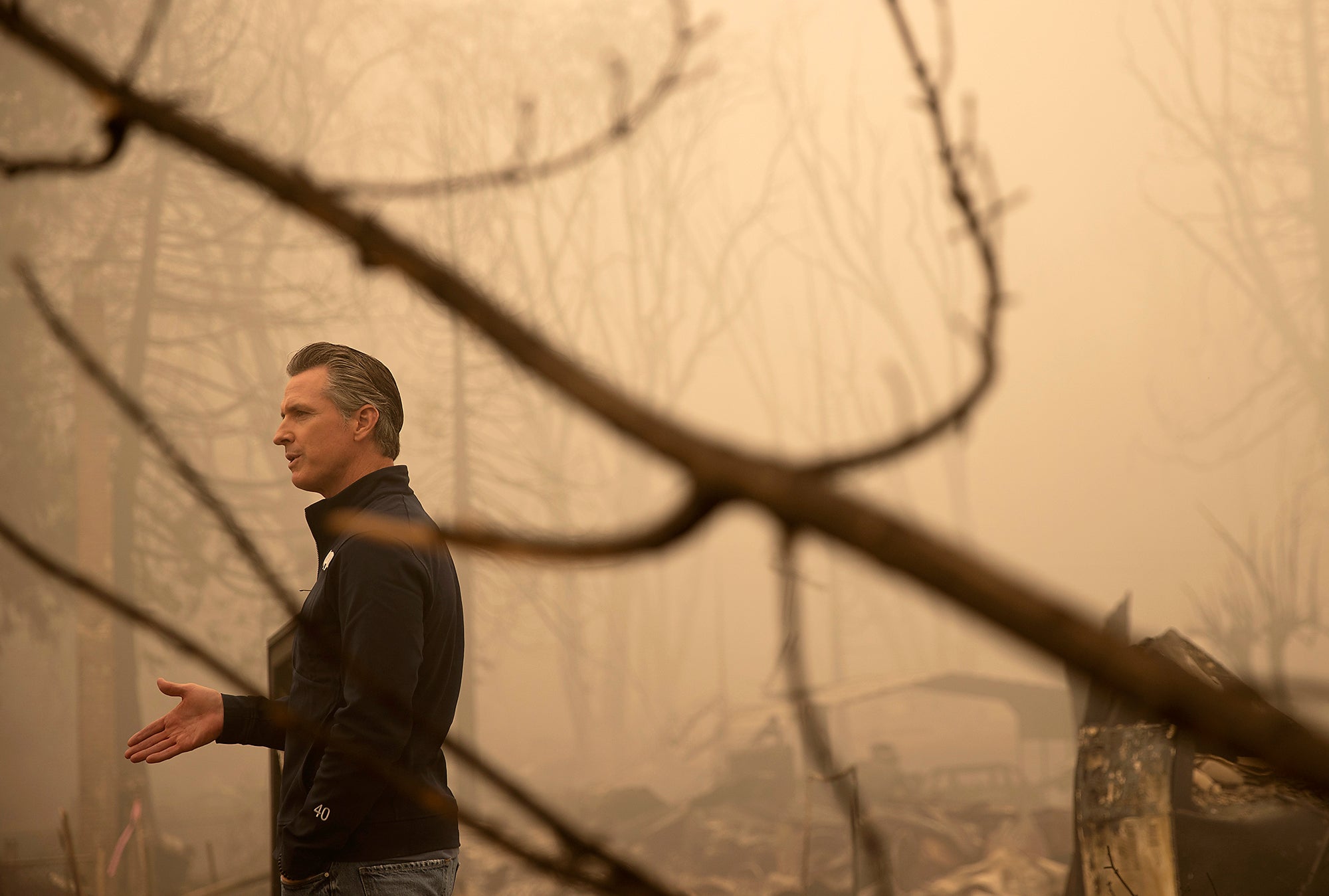California Plans to Waste $27 Billion Bankrolling a Polluters’ Paradise
With the Low Carbon Fuel Standard, California would be locked in to waste $27 billion in climate dollars on dirty fuels over the next decade. It’s up to Governor Newsom to fix it.
California is the climate laboratory for the United States: we’re early adopters of the cleanest vehicles, we ambitiously build big clean energy projects, and we tend to set the agenda on climate policies for other states. When we get it right, our kids breathe cleaner air and protecting our climate becomes more possible around the globe. But when we stumble, we stumble hard. And if you’re looking for a prime example of this, look no further than California’s Low Carbon Fuel Standard.
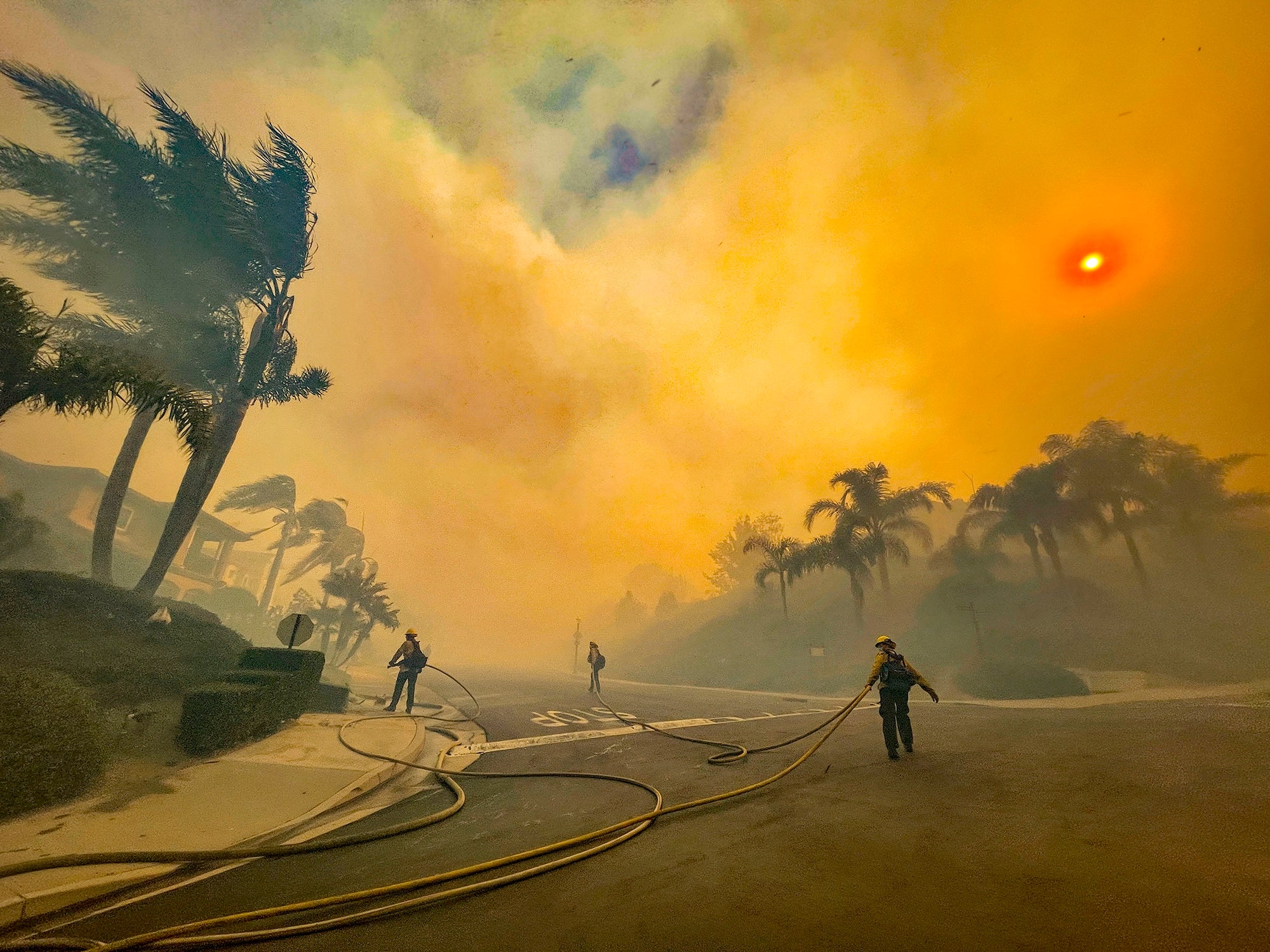
Climate change has already arrived in the Golden State. Firefighters battle the Coastal Fire near the intersection of Vista Montemar and Coronado Pointe in Laguna Niguel, California, on May 11, 2022. (Jeff Gritchen / MediaNews Group/Orange County Register via Getty Images)
The Low Carbon Fuel Standard generates revenues by imposing fees on fossil fuels used in transportation and is supposed to use those funds to support “cleaner” fuels. The only rub is after more than a decade, entrenched interests have figured out the system and have crowded the program with combustion fuels – many of which are just fossil fuels disguised as a clean fuels.
On one side of the debate, you have corporate lobbyists spreading misinformation that the future of sustainability entails burning fuels – oftentimes burning fossil fuels, but greenwashing them by taking credit for emissions reductions that happened hundreds to tens of thousands miles away. Many of the companies receiving millions from the program aren’t even in California.
On the other side, are community groups, environmental groups, labor, and advocates for electric vehicles who say we need a program that is worthy of what we know in 2024 – namely, that zero emissions does not involve burning fuels of any kind.
Ramming Through a Climate Blunder
Unfortunately, the greenwashing proponents have had a strong hand in shaping the updated program, ramming through a deeply flawed proposal that would perpetuate deep-seated problems and keep combustion as king in the Low Carbon Fuel Standard. According to our calculations, the agency has been lining up to waste up to $27 BILLION on polluting biofuels from 2025 to 2035. The revisions were careening towards a vote in March. Thankfully the agency decided to slow down this process.
The stakes could not be greater. California’s premiere air pollution regulators are debating the contours of a program that will last all the way until 2045. Given that the Low Carbon Fuel Standard spends $3 to $4 billion each year, a major resource for how we stave off the worst of climate change is on the line.
Corporate polluters have been able to take advantage because the program is a climate dinosaur from Governor Schwarzenegger’s era, invented in a time we thought we might use french fry oil to power cars and before widespread EV adoption (by contrast, in 2023 a full quarter of the cars Californians purchased were zero-emissions vehicles). Does anyone really think vegetable oil or cow manure fumes are the future of transportation in California at this point?
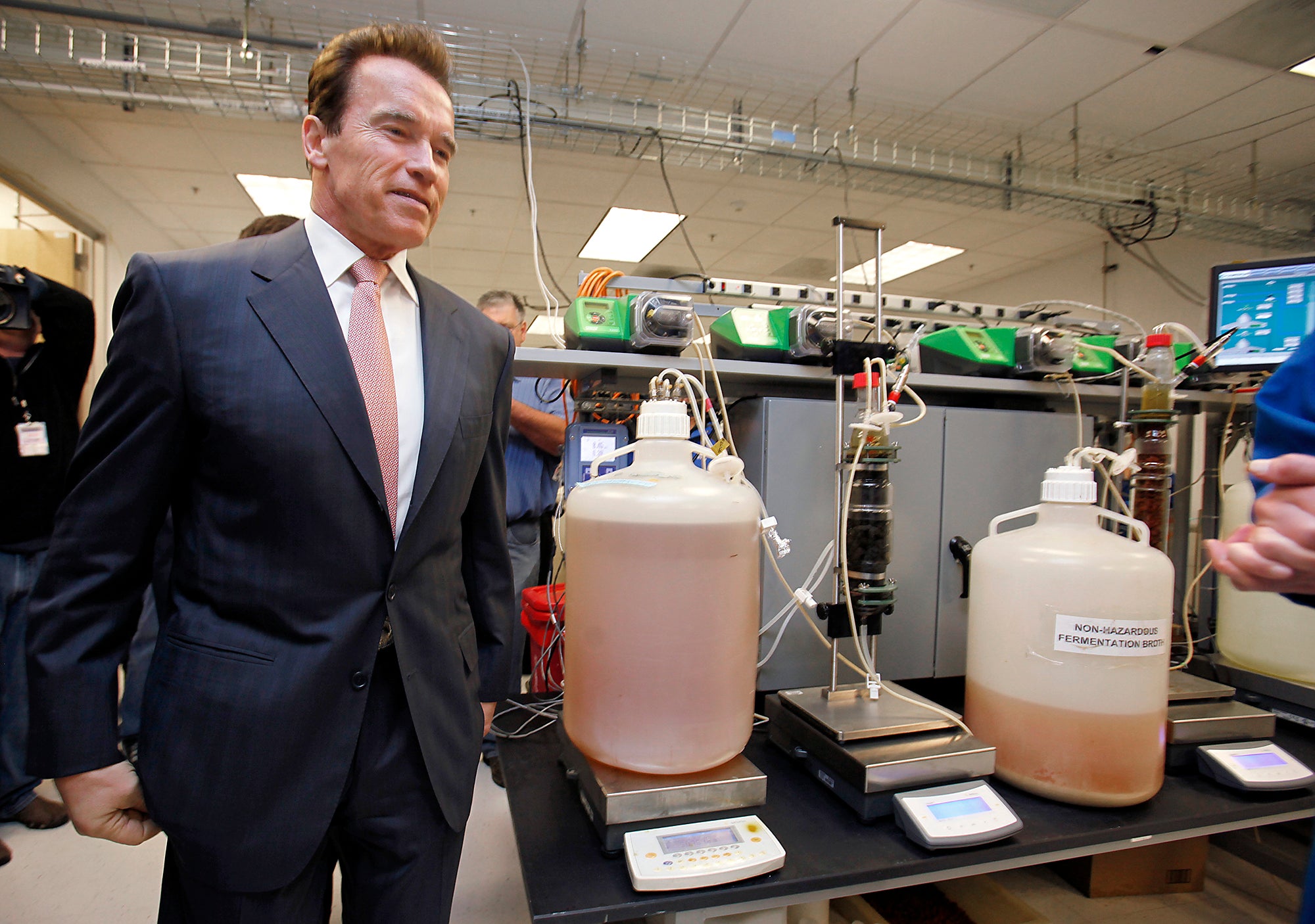
California Gov. Arnold Schwarzenegger tours the production process to make biobutanol at Cobalt Biofuels in Mountain View, Jan. 12, 2010. The notion of advanced biofuels that have always been “just around the corner” has baited policymakers for decades. (Paul Sakuma / AP)
Environmental groups have proposed vital and commonsense reforms to the program that would devote more funding to zero-emissions transportation in the state, especially in light of painful expected budget cuts in that sector. Key public transit agency leaders in the state have also weighed in, urging these reforms.
The proposal from environmental and environmental justice groups would:
- Phase out subsidies to polluting industrial dairies in the 2030s.
- Cap subsidies for biofuels (made from crops like soy and corn) at their 2022 levels.
- All while keeping costs for gasoline consumers lower than the state’s current proposal.
But the California Air Resources Board has failed to build in these critical reforms. That’s disheartening because we know California needs the Low Carbon Fuel Standard to actually work in order to provide tailwinds for compliance with life-saving regulations the very same agency recently designed and passed. Case in point: California’s Advanced Clean Fleets rule to shift truck fleets to zero emissions.
Scientists are Sounding the Alarm
But you don’t need to take my word for it. Just look to the scientists sounding the alarm to regulators in California with multiple letters to state leaders, formal technical comments, and new research on the topic. Dr. Michael Wara’s team at Stanford warns that: “There are real questions about the greenhouse gas emissions reductions claimed in the ISOR.” (The ISOR is the staff’s proposal for the new shape of the program). And further, “We recommend that ARB reevaluate GHG emission reductions and adopt a cap on lipid biofuels…”
Eight of the most prominent scientists studying the Low Carbon Fuel Standard sent the California Air Resources Board a letter last month advising: “We therefore urge CARB to cap vegetable oil-based biofuels immediately in this rulemaking. Nothing short of a cap will effectively stem the widespread harms caused by the rapidly growing use of these fuels.”
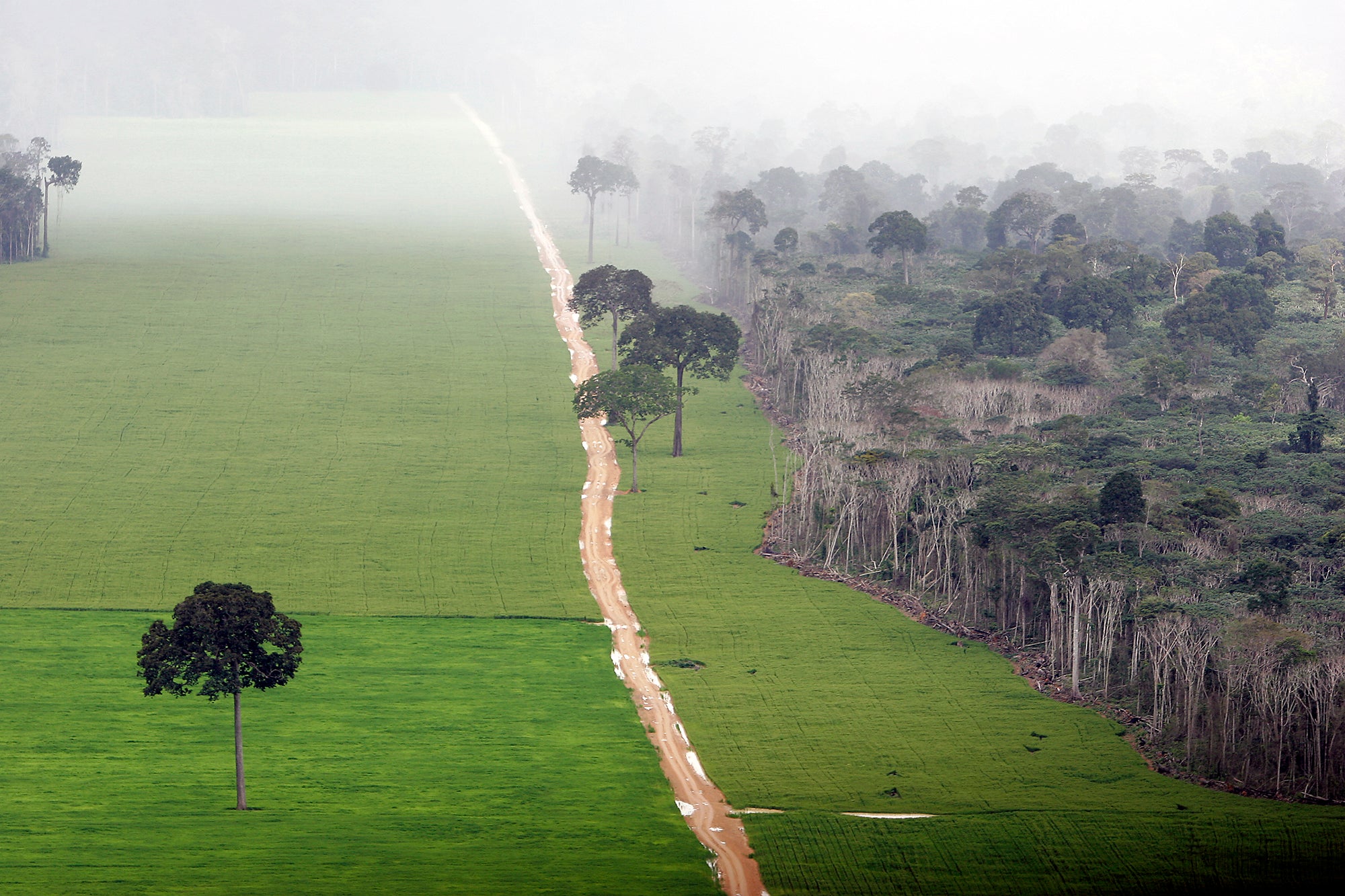
A soy plantation in a deforested section of the Amazon rainforest near Santarem, Brazil. Incentives to grow crops like soybeans and corn for biofuels is causing massive deforestation in the Amazon and Southeast Asia. (Ricardo Beliel / Brazil Photos/LightRocket via Getty Images)
Dr. Colin Murphy, co-director of UC Davis’s Low Carbon Fuel Policy Research Initiative, just published research that relates deep concerns with the proposed new shape of the program:
“It is unlikely that the proposed LCFS amendments will achieve their goal of stabilizing the credit market and supporting significantly higher credit prices. Moreover, the new RD (renewable diesel) capacity trend makes it likely that the proposed Automatic Acceleration Mechanism (AAM) will trigger multiple automatic increases in the LCFS program target trajectory in the late 2020’s, which will significantly increase costs to gasoline consumers.”
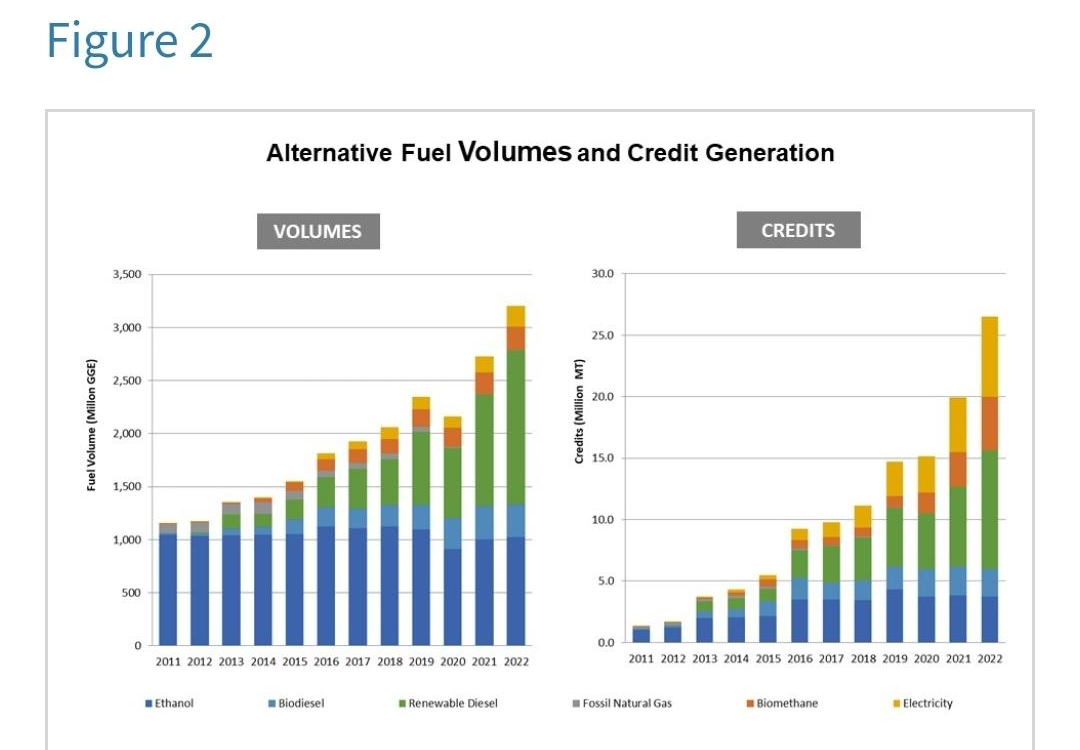
A chart from the California Air Resources Board shows the spiraling expansion of credits for renewable diesel in the multibillion dollar program (California Air Resources Board)
Denying scientific consensus is a page from the oil industry’s playbook, so it would be an unusual turn of events for California to shy away from the findings of lead scientists as the state shapes climate policies for the next two decades.
We Need an LCFS Designed for the Future We’re Trying to Build
It’s clear that we need a Low Carbon Fuel Standard designed for the California we live in now: a state doggedly, ambitiously making the shift to zero-emissions transportation and clean energy. We’re already all too familiar with the smoky skies that look like Mordor, the mega droughts, the thick smog, the storms waiting for us if we don’t succeed.
And Californians get what’s at stake: over 15,000 Californians have written in to the California Air Resources Board urging them to change course. At this point, we’re depending on Governor Newsom to step in and lead California in building a Low Carbon Fuel Standard that meets the moment in our fight for clean air and a stable climate. We need a strong Low Carbon Fuel Standard shaped and passed this year for the future we’re aiming for.
The California Regional Office fights for the rights of all to a healthy environment regardless of where in the state they live; we fight to protect the magnificent natural spaces and wildlife found in California; and we fight to transition California to a zero-emissions future where cars, trucks, buildings, and power plants run on clean energy, not fossil fuels.
Zoe Woodcraft
Public Affairs and Communications Officer, Earthjustice
zwoodcraft@earthjustice.org
